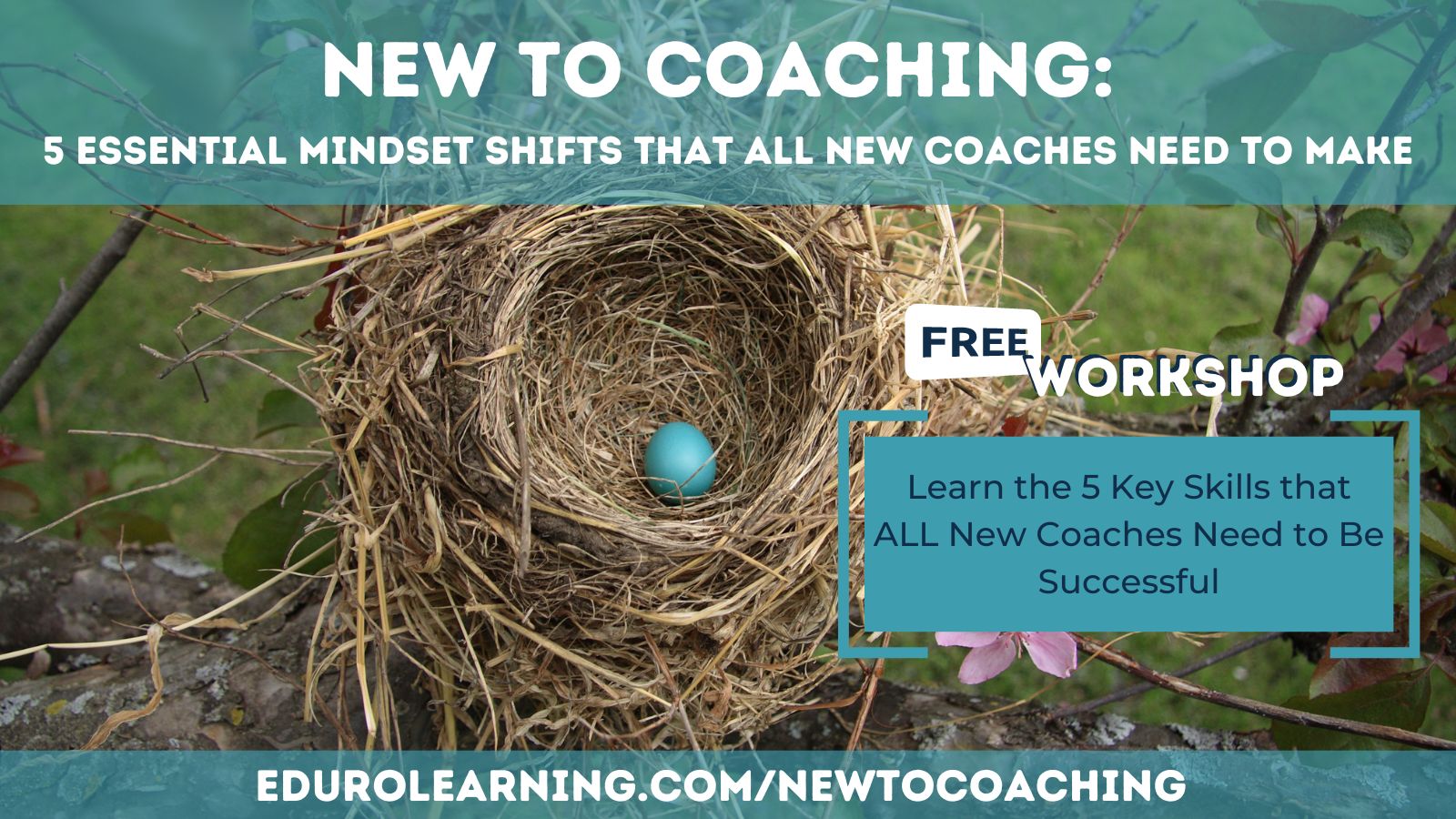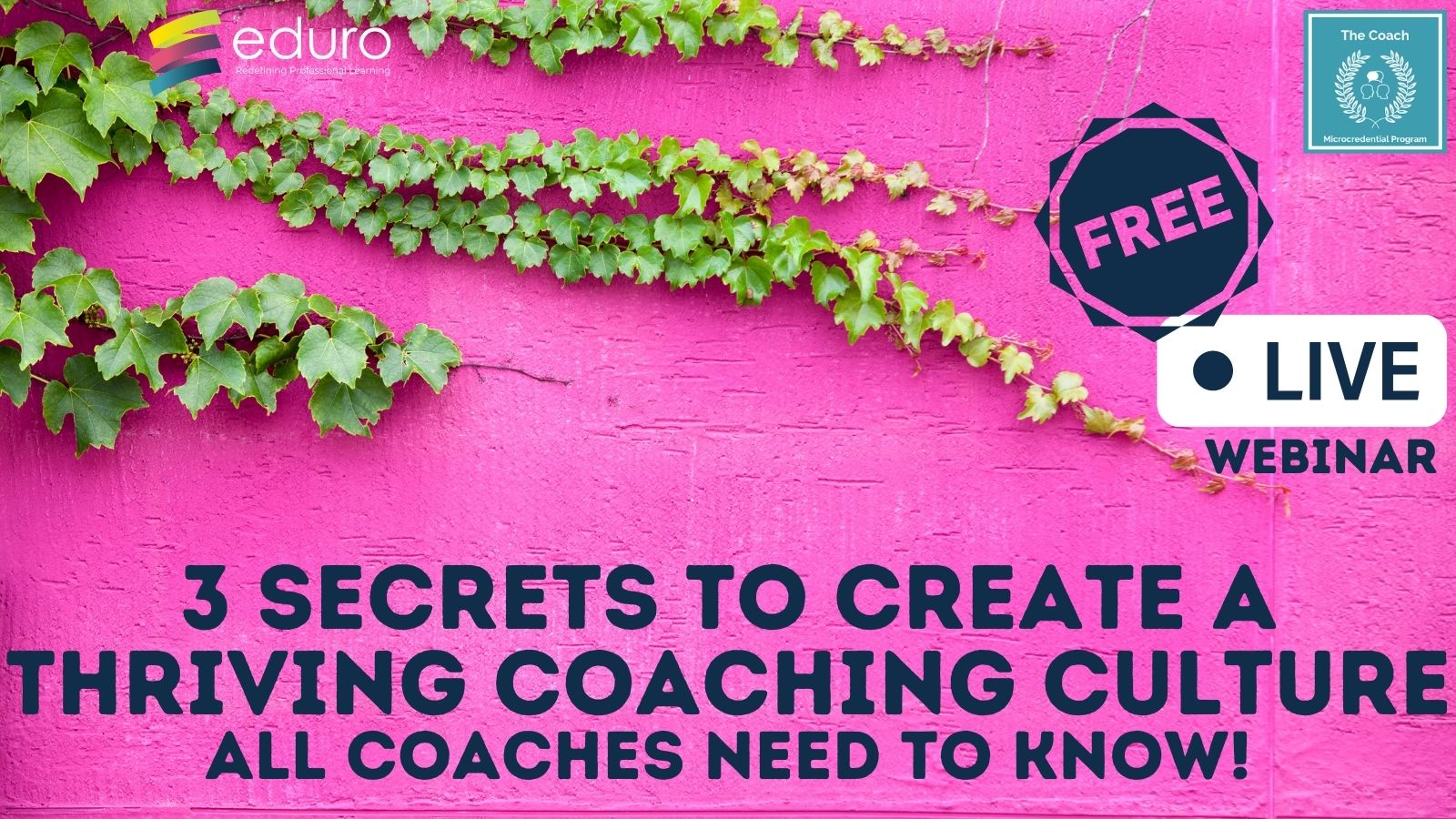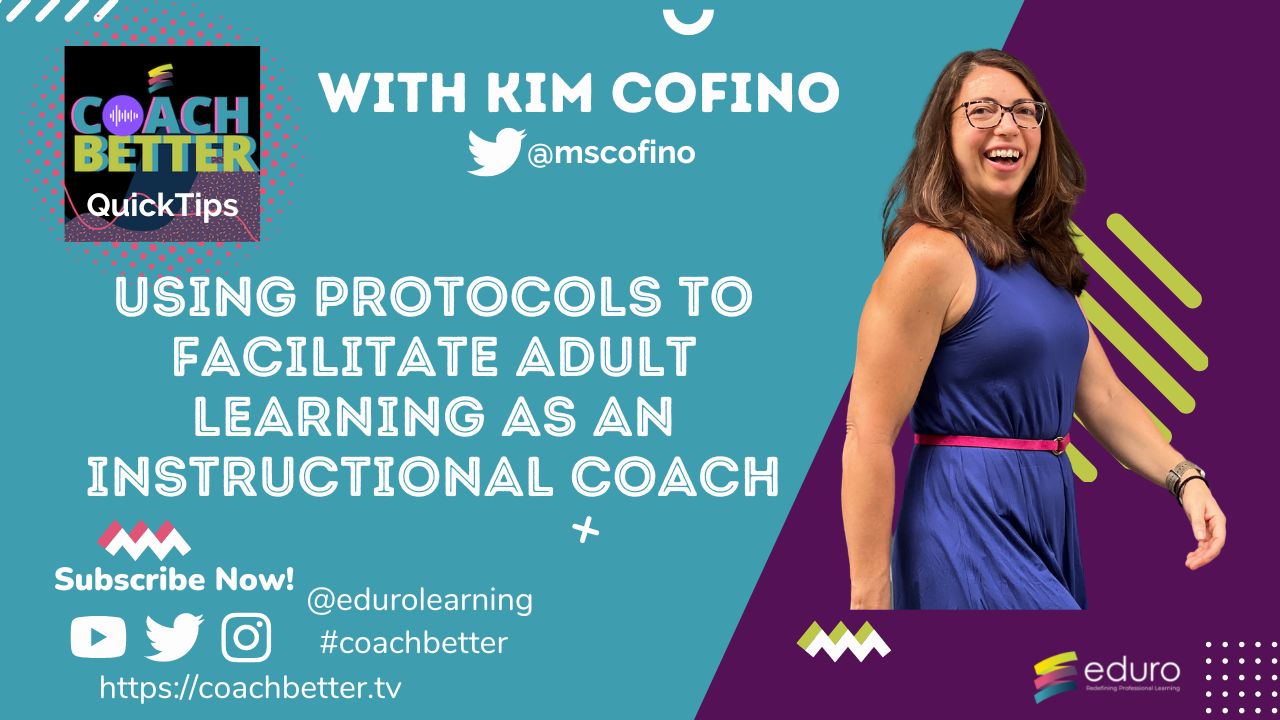Do you facilitate conversations with adults?
Do you ever find it challenging when:
- one person talks the whole time?
- one person never talks at all?
- groups never finish at the same time?
I know the feeling!
I remember early in my coaching career, before I started leading adult learning, and I was facilitating a book club with a team. I had this vision of a deep, thoughtful conversation where everyone took turns and we were able to truly reflect on our learning together. I thought we could just turn up to this meeting and chat about the book.
Well, for anyone who’s ever run a session with adults before, you’re probably laughing out loud right now. When we want to have a truly meaningful conversation, where everyone has a voice and time is shared equally among team members, that doesn’t just happen. It takes planning.
That’s when I discovered the concept of conversation protocols – and they really transformed the way I plan for any sort of adult learning.
Facilitating Adult Learning as an Instructional Coach
Being comfortable and confident in facilitating adult learning is a big part of being successful as an instructional coach.
In fact, one of my newest clients just shared that when she left the classroom and became a coach for the first time, the biggest reason she struggled was because she didn’t realize how different it would be working with adults.
If this is an area you want to grow in your coaching practice, that’s something we work on in all of our courses for coaches. You can find all of our learning opportunities right here on our coachbetter website at coachbetter.tv/learn
And if you’re new to coaching, registration is open for our brand new course: Getting Started as a Coach right now! This course is specifically designed for classroom teachers that are moving into a coaching role. It’s focused on exactly the skillset & mindset shifts you need to make to be successful as an instructional Coach. Find more details about the course (and a FREE workshop you can take right now) at the end of this post!
We’re going to dig into the What, Why, How, and When to use protocols today.
1: What are protocols?
Although the name sounds very formal, protocols are actually just
simple frameworks or structures for having an equitable conversation. If you’re familiar with Kagen cooperative learning strategies, protocols are similar – and they can be used with adults and children.
2: Why would you want to use protocols?
Protocols are important for adult learning because they allow us to go deeper into the conversation. As Michele Mattoon, guest on last week’s #coachbetter podcast episode (and Director of NSRF says: “They force you, in a kind and nice way, to think through something very deliberately.” This is exactly what makes protocols so powerful.
They:
- Ensure equity in conversations because everyone gets a chance to contribute and no one person can dominate (or completely avoid) participating in a conversation
- Provide a guideline / focus for thinking (For example, in working with clients in The Coach Certificate and Mentorship program, they say having a framework helps them reflect – even when they thought they had nothing to say)
- Are strategic, streamlined & intentional – these are purposeful conversations with an intentional outcome
If you’re just thinking about using protocols for the first time, they may feel unnatural at first, because you’re not just “having a conversation”, but once you get used to the process, it becomes a comfortable format for thinking and discussing deeply with others.
What’s YOUR level of coaching mastery?
All coaches go through various stages of coaching mastery. Once you identify where you’re at, you can begin to build the skills needed to move to the next stage.
This quiz is based on real-life case studies compiled from years of working with coaches inside The Coach Certificate & Mentorship Program!
When you receive your results, you’ll also get your matching case study from the STRIVE Case Studies to see where you fit in the stages of coaching mastery.
Ready to tackle your challenges and move on to the next level in YOUR coaching practice?

The STRIVE Model of Coaching Mastery quiz will help you identify your level of coaching mastery by matching you with case studies compiled from years of working with coaches inside The Coach Certificate & Mentorship Program so you can easily see where you fit!
When you complete the quiz, you’ll get:
- Your matching case study,
- Specific strengths & challenges aligned to your result;
- Suggested next steps for each stage;
Plus the Case Study Document includes:
- Case studies leveled by coaching mastery;
- A framework to identify essential stages of professional growth & key areas to focus on in your professional learning;
- Alignment with the THRIVE Model for a Successful Coaching Culture;
- Space for you to reflect & prioritize so you can take action immediately!
You’ll go straight to the Quiz, and get the Case Study Document via email.
3: How can you use protocols?
One of the best things about protocols is that there are SO MANY to choose from. Some of my favorite sources are:
- NSRF / CFG
- MTV / Visible Thinking Routines
- School Reform Initiative
Once you start using them, you’ll realize that the concept is simple, and you can start creating your own. They don’t have to be complicated at all. Some of my favorites are very simple:
- See, Think, Wonder
- Connect, Explore, Challenge
- Triangle, Circle, Square, Star
These are probably 3 of the most simple examples, some protocols are much more detailed, but in essence the concept is the same. You’re giving structure to a conversation (often with time limits for speaking and roles for each member of the team). You can use them any time you’re:
- Looking at student work
- Exploring a resource, like an article, video
- Reflecting on an experience
- Planning for an event
Anytime you would like people to dialogue about something, you can use a protocol!
Which brings me to…
4: When to use protocols?
You can use them any time you would like to facilitate adult learning or deep conversation: in small groups, as a reflection prompt, in large PD sessions. Basically anytime you want anyone to have a deep, equitable conversation.
If you chose to use protocols in your practice, you might want to consider how you implement them. Often when we use strategies like this, we don’t take the time to deconstruct what we’re doing and why. We leave the intentional work of selecting or designing the protocol and it’s purpose “invisible” to our colleagues. Choosing how and when to make this more visible might be important in your setting, so it’s worth considering how and when to share that with your colleagues.
Option 1: Just do it (and leave the sharing and reflection at the end)
In some cases, it makes sense to start by using the protocol, by sharing the framework and having the conversation. After the time for the conversation is finished you can reflect on the process, asking participants:
- What they noticed about this conversation compared to others
- What worked & what didn’t work for them
- How they might be able to use a framework like this in team meetings or with students
Option 2: Be transparent from the start
In other cases you might want to make the “invisible” parts of facilitating a meeting more visible for your colleagues. You might want to:
- Set the stage for doing a protocol (ensures equity in the conversation, keeps us “on time”, gives a framework to our discussion)
- Understanding the resource (like student data) you might be reviewing during this conversation (make sure they knows how to navigate the data)
- And again, reflecting on the process at the end (how did this work, what do you like? How can you use this in team meetings? What else can you use a protocol for?
When deciding which way to go, you might think about participants pre-conceptions about frameworks, if hearing about them might cause reluctance or make people feel intimidated – or the opposite – and chose what feels right in your community and context right now.
5: Where can you use protocols?
You can use protocols anywhere! In the classroom, on virtual calls, in staff meetings, in team meetings. Where (and when) ever you have groups of people having deep conversations, you can use protocols!
Do you have ideas about how you might be able to use protocols in your practice right now? Are you curious what it might feel like to be a participant in a conversation with a protocol? Do you want to bring more intentional conversations into your coaching practice? Let me know what you’re thinking about protocols in the comments below!
Watch the Video
Ready to Start Leading Professional Learning?
If you’re ready to dig deeper into being more intentional in your coaching practice – or if you’re new to instructional coaching and you’re curious about getting started, join us for one of our courses for coaches!
To learn more about these options, I have two FREE workshops to share with you today.
New Coaches:
If you’re just getting started as a coach, and you want to be successful in your early years, watch our New to Coaching Workshop, which highlights the key mindset and skill set shifts you’ll need when moving from the classroom to a coaching role. The workshop will also tell you all about our course for new coaches, Getting Started as a Coach.
This short course is specifically designed for classroom teachers that are moving into a coaching role so you’re prepared for the transition. It’s focused on exactly the skillset & mindset shifts you need to so you can be successful in your first years as an instructional coach.

Experienced Coaches:
If you’re already a coach & you want to think about being more intentional & strategic in your practice, watch our workshop on the Thrive Model for Coaching Success which will help you evaluate your program and your practice to see where you may have room to grow. You’ll walk away with a clear picture of exactly what you need to focus on to build a thriving coaching culture – and help you decide if our year-long mentorship and certification program, The Coach, is right for you, right now. This program is designed for current coaches who are focused on building a coaching culture through intentional and strategic coaching work at all levels – with teachers and school leaders.

Wherever you are in your coaching journey, we can support you!
If you’re curious right now, you have questions, please reach out. You can leave a comment below, join our #coachbetter Facebook group, or find us on social media @edurolearning and send me a DM.

Recent Comments